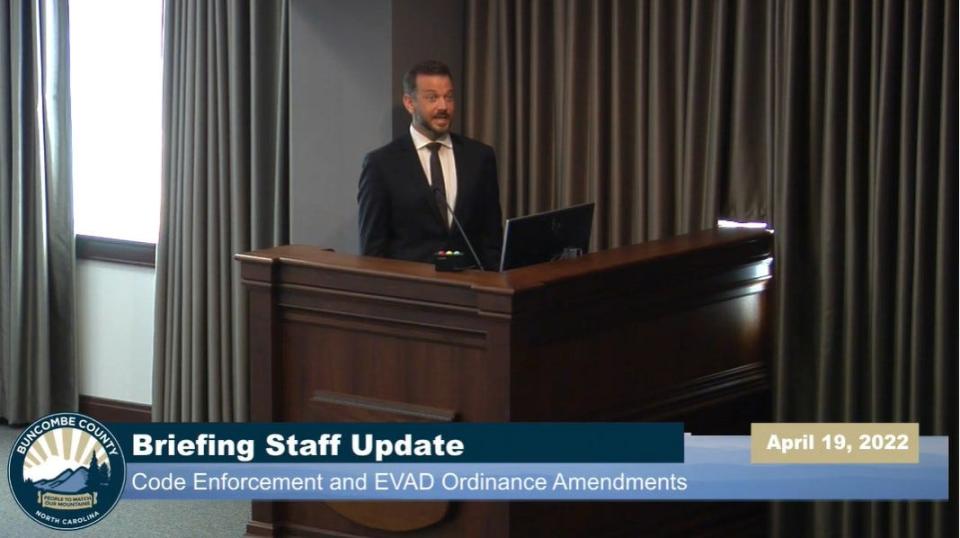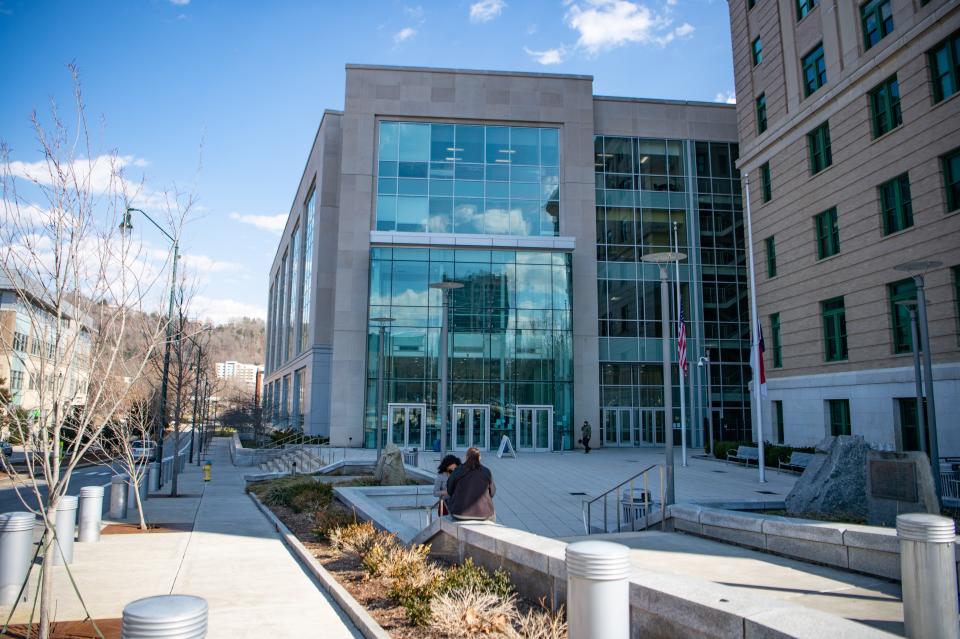NC law requires Buncombe to relax some punishments for land-use, mobile home violations

ASHEVILLE - Buncombe County government must decriminalize several code violations it currently deems misdemeanors and delete many others including some regulating land use, thanks to a recent North Carolina law change.
Passed in August 2021, the North Carolina General Assembly enacted Session Law 2021-138 — also known as Senate Bill 300 — that prohibits local governments from effectively criminalizing numerous ordinance violations.
Buncombe now will move to delete several ordinances that can't be enforced with a criminal penalty and clarify or modify several others.
SB 300 was originally sponsored by Republicans with input from Democrats, and gathered bipartisan support, though it didn't pass unanimously. Its broad purpose, according to a news release put out by Gov. Roy Cooper in September, is to make "important changes to improve policing and criminal justice."
The move affects every county and Buncombe will move toward compliance May 3 when Board of Commissioners are set to first vote the rule changes through. They'll take effect pending a second approval vote at another meeting.
Related: Pending Buncombe vote, $70M bond referendum for housing, land headed for November ballot
"It used to be that, if a local government had a rule on the books and it was violated, if the ordinance didn't say anything different, it was considered to be a misdemeanor," County Attorney Brandon Freeman said in a recent presentation on the changes.
Now the county has to change how it hands out misdemeanors, a move that could especially affect local development .
"It was really mostly land use violations for us," Freeman said, referring to how the law would impact Buncombe.

Voting: Early voting is open in Buncombe County, Asheville. Where can you vote? Do you need ID?
Candidates talk: What do NC House, NC Senate candidates for Asheville, Buncombe say on Medicaid, hotel tax?
The move will affect just more than 30 local ordinances.
According to Freeman's presentation — which he's set to give May 3 and already presented at an April 19 briefing — if commissioners approve the ordinance changes, Buncombe will no longer be able to impose criminal or infraction penalties for ordinances that:
Regulate planning and development, “except for those ordinances related to unsafe buildings.”
Concern the regulation or licensure of businesses or trades.
Concern stream-clearing programs.
Regulate outdoor advertising.
Limit or regulate solar collectors, cisterns or rain barrels.
Regulate trees.
An infraction is punishable by a fine in court but not an arrest, Freeman said.
Additionally, according to the change, N.C. counties will no longer be able to impose criminal or infraction penalties for ordinances related to the registration of mobile homes and house trailers.
The changes also impact violations related to law enforcement interactions like making false reports or even hiding an animal.
For example, one ordinance makes it unlawful for "any person to conceal any animal for the purpose of evading any federal, state or local law."
In the current version of the law, an officer is allowed to seize the animal from the person who violated the law.

In the new version, they could be fined $500 or be required to serve a maximum 30 days in prison, but the animal can't be seized.
These minor changes in how Buncombe violators are treated by local law enforcement are meant to reflect a broader state-wide effort to affect criminal justice reform.
In the September news release addressing the passage of SB 300 and two other law enforcement-related bills, Gov. Roy Cooper said North Carolina needed to improve its approach to equity in law enforcement.
“We have seen that the criminal justice system doesn’t always treat everyone the same – and too often the differences are disproportionately felt by people of color,” he said. “This legislation will take us one step further toward a more equitable and just North Carolina for all.”
Related: Buncombe DA Candidates debate violence, homelessness and justice reform at CIBO meeting
Cooper emphasized several points in the bill, noting it:
Promotes recruitment of officers with diverse backgrounds and experiences and improves training so that officers are better equipped to be successful.
Requires early intervention mechanisms to identify and correct officers who use excessive force or other misconduct.
Furthers independent investigations of police-involved shootings.
Limits local laws that criminalize poverty.
Requires a first appearance in court within 72 hours of a person being arrested.
These and other changes to Buncombe's code come as leaders in 2022 are systemically pursing a wider research and feedback on how it can update ordinances to reflect the county's future.
Known as the Comprehensive Plan 2043, the program will create a vision as well as law alterations.
It will ultimately be a "document created by local governments and residents to determine what the focus and vision of the community should be over a long-term, 20 year period," according to the county's project website. Some of that vision will be related to development, especially as Buncombe continues to see a growth boom.
This is the first time the county has completed a comprehensive plan in its 230-year history.
"I think that a more holistic view of what code enforcement and criminal enforcement may look like in the context of our ordinances would be a better conversation to have after we get through with the Comprehensive Plan," Freeman said of the code changes coming before commission May 3. "This is just to make sure we align with state law."
Andrew Jones is Buncombe County government and health care reporter for the Asheville Citizen Times, part of the USA TODAY Network. Reach him at @arjonesreports on Facebook and Twitter, 828-226-6203 or arjones@citizentimes.com. Please help support this type of journalism with a subscription to the Citizen Times.
This article originally appeared on Asheville Citizen Times: NC law: Buncombe land use code-breaches to face less severe punishment

